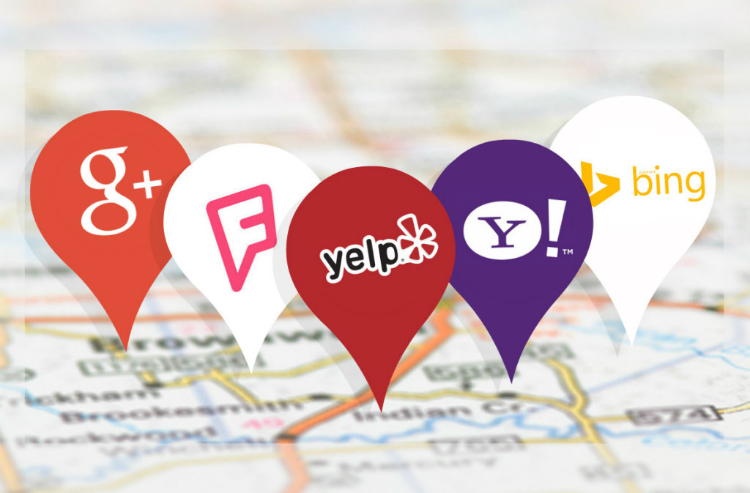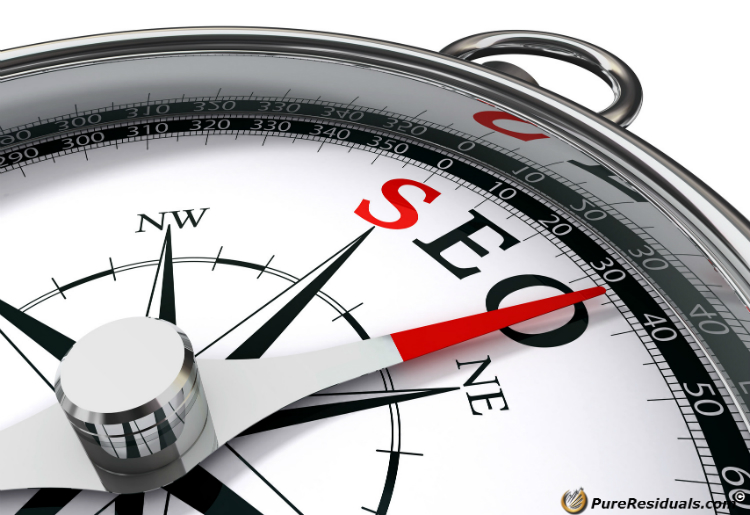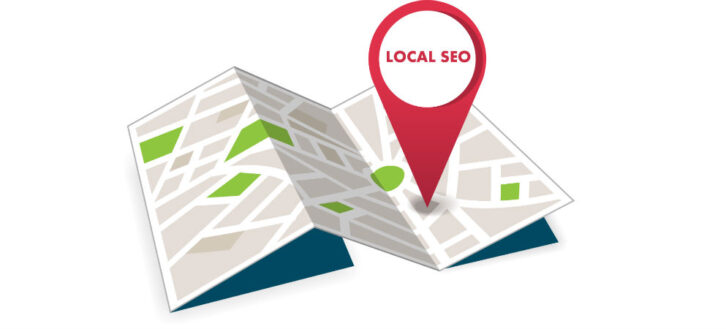Every marketer knows about the importance of SEO, but not everyone is aware of the importance – or sometimes even the existence – of local SEO. Everyone keeps talking about influencer marketing as if a social media influencer could give the necessary reach to attract the attention of a bigger audience, but what you should really focus on is local business SEO.

Best local SEO practices will help you improve your overall online strategy enhancing your campaign and bringing it to life with local SEO marketing. Here is everything you should know about local SEO and how to improve it in 2020.
What Is Local SEO?
Unlike regular search engine optimization, local SEO is aimed at improving the searchability and visibility of your content for users located in a certain area rather than users located all over the world. Local SEO is said to be especially useful for small businesses that want to focus on their local communities instead of shipping worldwide.
Local SEO allows you to focus on a smaller segment of your audience living or located in a particular area which means you will have more chances of showing up higher in search results and attracting more visitors to your shop. That being said, your website will still show up in global search results and customers worldwide will be able to see your site.
The main aim of local SEO is to ensure that a business that makes most of its revenue operating locally can make it big in its area without having to expand to foreign markets. You will mostly be directing your focus to local SEO as well as to regional SEO in order to stand out of the crowd and be able to overcome your competitors.

What Are the Main Benefits of Local SEO?
So, what exactly are the main benefits of local SEO? The objective of search engine optimization can be divided into two main points: ensure that your website appears in Google search results and ensure that you generate more sales and conversions with its help. The aim of local SEO is no different, though the tactics used are more detail-oriented.
Local SEO can strengthen your positions in the local market. As mentioned earlier, this is especially important for small businesses that want to become powerful within their area rather than trying to compete with larger companies operating worldwide. If you are located in a certain city or even in a smaller town or village, local SEO becomes your best friend.
Local SEO can also help you increase visibility. However, this is achieved not by getting out onto the bigger markets but rather by focusing on your niche regional audience and trying to get as high in search results as possible. Remember that only the first few websites that show up in search results are the ones that get the majority of the clicks.
Lastly, local SEO is focused on giving you a competitive edge and making you a serious player – the big fish in a small pond. It can improve your reputation and make you appear more professional which is always great for your brand image. Keeping in mind all the advantages of local SEO, it is undeniable that it is necessary for your digital marketing.

How to Manage Local SEO For My Website?
Now that you know what local search engine optimization is and why it is so crucial for you as a business owner, entrepreneur, or marketer, here are some of the things you should do to get started with your local SEO campaign or to improve your existing local SEO strategy:
- Google My Business: Your first step is to optimize for Google My Business. This is one of Google’s many tools that can help you establish your online presence (another major one would be Google Analytics, but that is used for tracking the performance of a website that does not necessarily represent a certain business). Google My Business is essentially a tool that will help you share information about your business that will meet Google’s requirements and needs. This way, Google will be able to verify that your company is real and authentic which has many benefits to it (e.g. you might get a space in the sidebar in local searches). All you need to do is create a Google My Business page for your business and fill it out properly. Then, start using Google Posts in your account to encourage customers to share their reviews about your business. Make sure to respond to their feedback and interact with your customers as much as possible always sharing the product or service you offer and your location.
- Internal Linking Structure: Otherwise known as navigation, the internal linking structure is fundamental for any website that wants to offer the best user experience there can be while also being more search-friendly and enabling search engines to easier crawl the website. By building your internal linking structure, you make it easier for your website visitors to get to different pages and pieces of content on your site as well as letting them feel more comfortable when they are on your website. Otherwise, they might get confused as to where they can find the information they are looking for. When it comes to search engines, Google favors websites with good internal linking structure because it can easier crawl your website and it knows that your site visitors will likely favor your site which, in turn, leads your website to appear higher in search results.
- Backlink Profile: Thought internal linking structure is absolutely necessary, a good backlink profile is also one of the most important elements of good search engine optimization. The more backlinks there are to your website and the higher their quality is, the more likely your website reputation is good according to the search engine logic. When crawling your website, Google also looks at other websites that have links to your site. If these other websites that link back to you have a good reputation, there is a chance that their authority will be partially transferred to your own website. In other words, those sites wouldn’t link to you if your site wasn’t legit, so obviously, in Google’s “eyes”, your website is worth ranking higher. To build your backlink profile, consider guest blogging as it is considered the most effective way to get more backlinks to your site. Besides, this will give you additional exposure – especially if you guest blog on the websites of other local businesses in your area – and will improve your reputation because your potential customers will see your content on other websites and think of you as an expert in your field.
- On-Page Optimization: On-page optimization is quite a broad term and consists of optimizing such elements as your page URLs, title tags, headers, meta descriptions, and – most importantly – your content. It is SEO at its basic level but taking into account the local aspect of the optimization. When creating a new page, always make sure that the URL for it has the necessary keywords including your product or service and your location. Mention your location in title tags and meta descriptions as well. Headers might not always need a location mention unless you are specifically creating a piece of content that needs to state your location. And, of course, mention your location, product or service, and all the necessary keywords in the content you create – be it a product description, an article about the benefits of a certain product, or even a simple informational page.
- Location Pages: Speaking of cleverly using your location. If you have more than one physical store in an area, it is a good idea to create separate location pages for each of your stores. For example, you might have opened a second bakery somewhere downtown and want to start targeting searches not only for your primary bakery but also for the second one. This is why you need to create location pages that will describe what each of these bakeries has, your contact information for each of the bakeries, the products you offer if they differ, and so on.
- Local Content: While all the other tips in this article will help you get to the more technical parts of local SEO, what is truly important to understand is that local content will be somewhat of a foundation for all of your other efforts. Google and other search engines are getting smarter by the day, so they can now understand which pieces of content are oriented for a global audience and which ones are suitable for a local one. This is why you need to think of the kind of content you can create that will be specifically suitable for the audience that is specific to your area. For example, a bakery can publish a comparison article about two different types of croissants they bake while also basing it on something local (e.g. the bakery is located in France and these croissants originate from the area where the bakery is situated).
- Mobile-Friendliness: Did you know that the majority of searches are now done from mobile devices like smartphones, tablets, and so on? Desktop computers and laptops are still used, but most people are constantly on the go and can’t really get their laptop out to search for a local café when they are in public transport. This is why making sure that your website is mobile-friendly is probably one of the most important things you need to remember when creating your website. But if you already created your website and want to optimize it for mobile searches, it is still possible. You will need to hire a professional who will create a mobile version of your website and fill it with all the necessary information that your desktop version has.
- Consistency: What many business owners seem to overlook, ignore, or even forget about is consistency. There have been many instances when customers were confused because they saw certain information about the business on one website and then a completely different piece of information on another website. Or even worse: different information on one business website. This is why you need to make sure that everything that is posted online about your business – from contact information to the kinds of products you sell or the services you provide – is consistent across all channels that include your website, your social media profiles, and other websites that mention you.
- Online Directories & Citations: This is a separate tip, but it is very tightly related to the previous one. Online directories and citations that list your website also need to be kept in check so that the information about your business provided there is accurate and up to date. Not only does this ensure that anyone looking for you there will get everything they need, but it also helps you maintain consistency about the business information of your company posted online.
- Social Media Platforms: Last but not least, never forget about the importance of your social media profiles. Every business, even if it is a small one and only operates in a particular area, should have at least one or two social media profiles. This will show that you are a legit and serious business, can help you grow your online following, will help you find collaborators or potential business partners, and so much more. In addition to that, combining your social media strategy with your Google My Business profile raises your chances of appearing more reputable for Google. If the search engine sees that you get regular social media mentions and links to and from your Google My Business page, it will be more likely to favor your site in local searches.
Final Thoughts
All in all, if you really want to make your online marketing campaign more efficient, follow the tips outlined in this article about what is local SEO and how you can start using it in your strategy or how you can improve it if you are already using it.
About the Author
Gregory V. Chapman is passionate about researching new technologies in both mobile, web and WordPress. Also, he works on Best Writers Online the best writing services reviews. Gregory in love with stories and facts, so Gregory always tries to get the best of both worlds.


